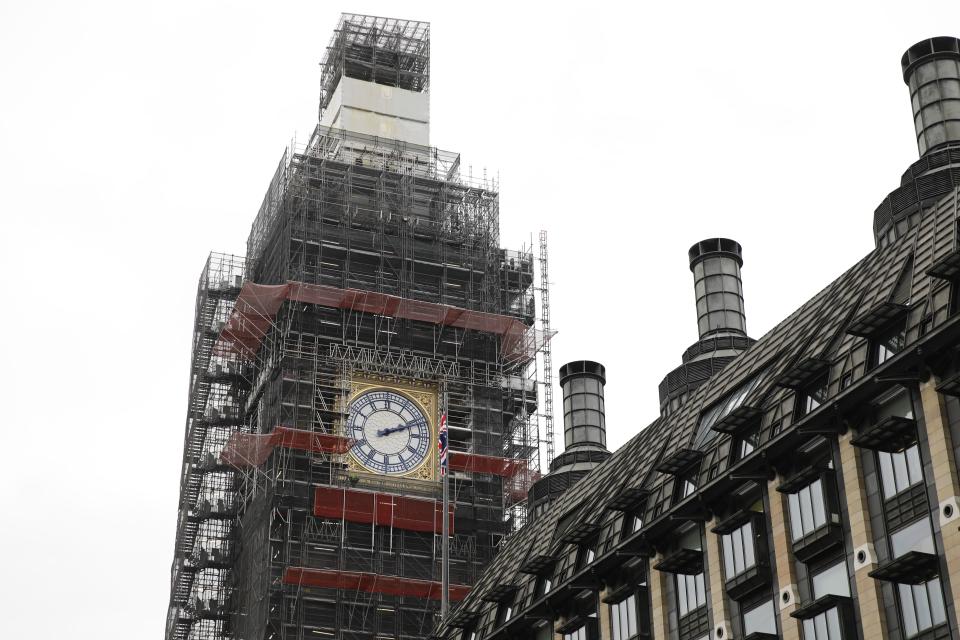UK pressuring EU to stick with daylight saving time shifts

The British government is pressuring the European Union to stick to its time-honoured tradition of observing daylight saving time.
The European Parliament voted on Tuesday to end seasonal clock changes in 2021, though any final decision on the matter must be agreed with the European Council.
Under the new plan, European countries would be able to decide whether they want to stay permanently in summer time or winter time.
But the UK is pushing back on the move.
“The UK does not believe there is any case for changing the current arrangements,” a government spokesperson told Yahoo Finance UK. “We are working with member states and the [European] Commission to convince them of our position.”
Despite the opposition, the UK may eventually feel compelled to follow the EU’s lead if the bloc passes a new law covering this issue.
James Smith, an economist at ING, told Yahoo Finance UK that it makes business sense to remain aligned.
“Over time there might be economic value in switching to the EU’s system,” Smith said.
The European Commission warned last year that if EU countries do not fall in line, it could lead to potential transport disruptions, problems with communication systems, higher costs for cross-border trade, and lower productivity.
Even though the UK is slated to exit the EU in a matter of days, these considerations are still important since Europe is the UK’s largest trading partner. Roughly 53% of all British exports head to the EU, and 44% of all imports come from the bloc.
But on the flip side, the US still follows the seasonal time-change practice and it provides a market for about 20% of all UK exports and supplies about 11% of all British imports. The US decision in 2005 to switch the date for its daylight saving time did not lead to a corresponding response from the UK and EU. However, Canada did follow the US.
The UK’s leading business organisation, the Confederation of British Industry (CBI), said it did not have an opinion on this issue.
READ MORE: UK set to adopt new EU speed-limiting rules for cars
Jonathan Portes, a professor of economics and public policy at King’s College London, said he’s not too concerned if the UK maintains the practice of seasonal time shifts while the EU stops altogether.
It could present a “minor inconvenience,” Portes said.
It’s about time …
Professor Steve Hanke takes a slightly more nuanced view on daylight saving time. As an expert in applied economics at Johns Hopkins University, Hanke has conducted in-depth research on the subject of time for more than a decade.
He believes the UK should stop the daylight saving practice and stick to Greenwich Mean Time (GMT) permanently, regardless of what the EU does.
“I certainly wouldn’t recommend that the UK bows to the EU on time or necessarily anything else,” Hanke told Yahoo Finance UK. “The UK should ignore the EU. They have the gold standard on time right now. They keep it. That’s the end of the story.”
Hanke argues that it doesn’t make sense to have dozens of time zones around the world and, instead, all countries should simply use Greenwich Mean Time. That’s already standard business practice for aviation and in global financial transactions.
“I think the logical thing to do would be for the EU to adopt universal time, that is Greenwich Mean Time. And that way, for sure, everyone would be on the same time,” he said. “The natural progression of things is going to universal time and the move by the EU kind of confirms that.”
A history of seasonal time changes
The practice of moving the clocks forward by one hour in the spring leads to delayed sunsets and “makes it possible to capitalise on natural daylight,” according to a briefing document from the European Parliament.
The practice was first introduced during World War I in Germany and France. About 60 countries around the world currently follow along.
In the EU, the clock-changing process was standardised and harmonised in the 1980s to ensure the smooth functioning of the EU’s internal market.
The next clock change in the EU is set to take place this coming weekend.

 Yahoo Finance
Yahoo Finance 